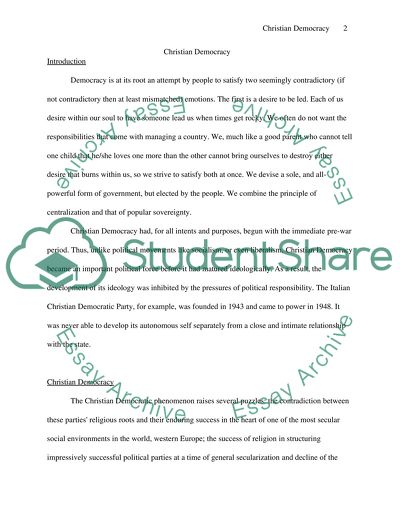Cite this document
(“Christian Democracy Essay Example | Topics and Well Written Essays - 1500 words”, n.d.)
Christian Democracy Essay Example | Topics and Well Written Essays - 1500 words. Retrieved from https://studentshare.org/religion-and-theology/1504203-christian-democracy
Christian Democracy Essay Example | Topics and Well Written Essays - 1500 words. Retrieved from https://studentshare.org/religion-and-theology/1504203-christian-democracy
(Christian Democracy Essay Example | Topics and Well Written Essays - 1500 Words)
Christian Democracy Essay Example | Topics and Well Written Essays - 1500 Words. https://studentshare.org/religion-and-theology/1504203-christian-democracy.
Christian Democracy Essay Example | Topics and Well Written Essays - 1500 Words. https://studentshare.org/religion-and-theology/1504203-christian-democracy.
“Christian Democracy Essay Example | Topics and Well Written Essays - 1500 Words”, n.d. https://studentshare.org/religion-and-theology/1504203-christian-democracy.


